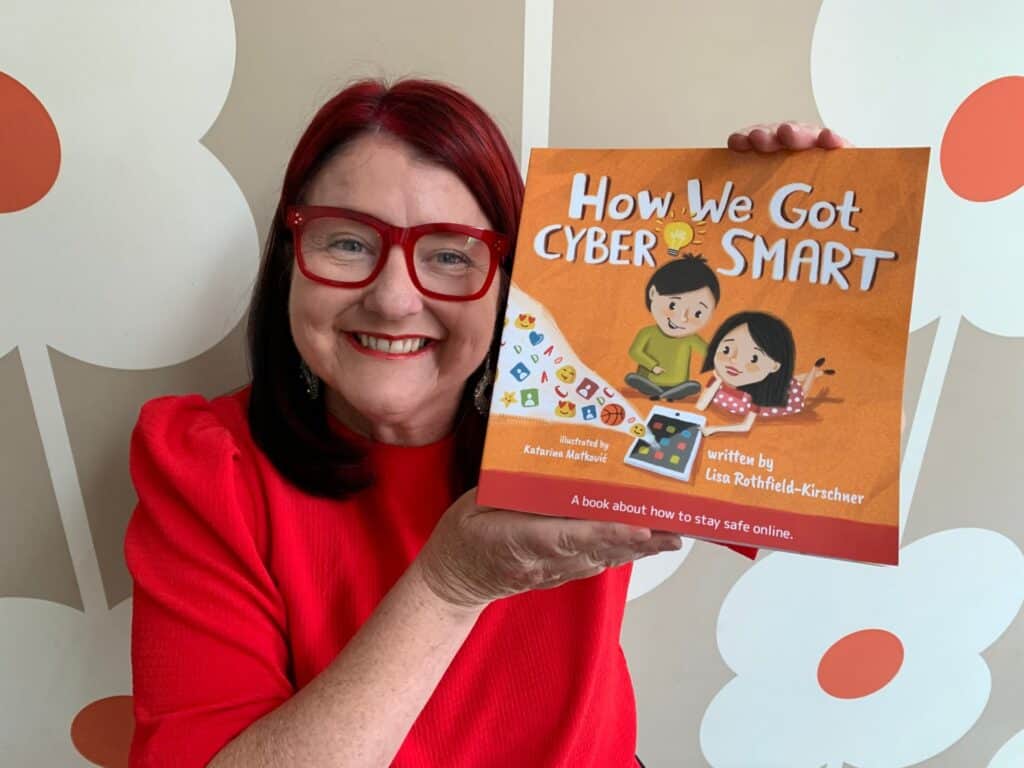I often hear the internet being likened to learning how to teach your children how to drive.
You don’t just give them a car and say “Go for it-drive” or “Good luck. Here’s the keys, see you at the end of it” -right?’ It takes hundreds of hours, coaching, ongoing discussions, practice, taking risks, making mistakes (hopefully not big ones), coaching and lots of patience.
Learning how to understand and navigate the internet should be like teaching your children how to drive. It takes all of the above because although the internet provides a fantastic opportunity for learning, living and connecting with it can also be a place of hurt and abuse. A concerning thing about all of this is that danger can only be one click away and be happening in our homes – even when parents are in the same room.

How can kids stay safe when they're online?
Our kids need to know how to navigate the online world so that they are safe and know what to do and who to tell when they are not. They also need to learn the skills for developing happy, healthy, respectful and responsible relationships with those they connect with.
It’s also really important to remember that different rules and tips can apply to different age-groups. You will make mistakes and maybe give-in at times. It’s not easy being a parent especially when we did not grow up with the same access to technology, especially when it’s changing right, and our kids have much greater digital literacy.
Here are some tips, so that parents, carers and educators can help keep children safe online.
7 Tips to keep your kids safe online
1 - Start conversations when they are young
It’s never too late to start conversations, (just sometimes harder as they get older) and to keep them going.
- Ask and show an interest in who your child is connecting with online and that you are always there to support them if something uncomfortable happens.
- Listen to them but keep a watchful eye and express your concerns when you are worried.
- Share your feelings and values but avoid blanket criticism of your children’s opinions or favourite media because sometimes if you are too forceful they may not tell you how they feel, or keep things from you.
- Be interested. Be proactive in asking questions and identify opportunities to explore media literacy in everyday, unexpected ways.
The earlier you start conversations the more you can build on them and negotiate as your children get older.
TIP: Read my blog about how to start conversations about tough topics with your child.
2 - Get educated yourself
There are so many books here on my website and online resources to help and support you, whether that’s finding out if an app is age appropriate or if you need advice for a certain age-group. There are so many organisations that offer newsletters and helpful information.
Below are some of the books about cyber safety I reviewed. Click on the image to read.
3 - Educate your child about the dangers
You can talk with your kids, in an age-appropriate way about things like grooming and pornography. Talk about things like having a digital footprint, protecting their passwords and keeping their privacy, identity and location private.
TIP: Click here to read how you can protect your child for the dangers of pornography.
4 - Be a role model
By this I mean practise what you preach! This is a tough one (for me too). If you are always online then your children with probably be like that too. Have boundaries yourself around the internet. Be mindful and respectful because they are watching!
5 - Set boundaries and try and stick to them
Whether getting parental controls, firewalls, data limits, monitoring passwords, reporting inappropriate content that your child has seen. Do you know that you can Google offers child safe settings where explicit content is blocked? Set rules for where your child’s devices are placed in the home and when at night (or other times) they must switch them off. Even using a family contract can be a great part of your daily life. Boundaries are essential.
6 - Spend time in their world
Have a look at the profiles they are following and follow them too. Get to know your child’s media environment and who they are connecting with. Check if the app allows online live messaging, chat and video with friends and others This will all help you to connect with your child and also protect them if they are looking at content that is not age-appropriate or safe.
7 - Safety network
Sometimes our kids don’t always want to talk with us if something has happened particularly online, so talk with them about other adult mentors who they know and trust. This can help them to know that they can talk to someone else and it doesn’t have to be you. Your child’s school should also offer guidance, wellbeing and safety programs.
BONUS TIP:
Click here to access my free resources for parents and pre-teens, including a safety network star that helps your kids identify who they can trust.
Final words about how to keep your kids safe online
The internet is such a positive thing in so many ways. Let’s support and protect our kids to make wise choices so that they can be happy, healthy and kind humans who ultimately know that they can talk to you about anything – even when it’s an online issue that is difficult for them to talk about.








